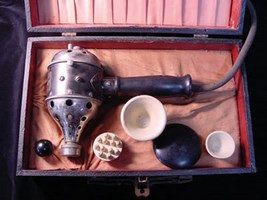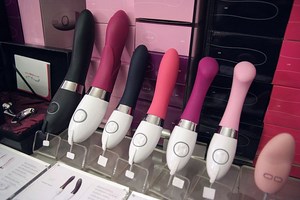I have previously written on some underlying factors which may cause anorgasmia. I have outlined four of the seven primary fears which pull people out of sexual consciousness and into self-criticism. As I have pointed out, our mental state is vital to our ability to perform sexually and to orgasm. Anorgasmia, while affecting more women than men, has every person susceptible if they succumb to any of these primary fears. I will finish this topic by discussing the final three fears, starting with the fear of inadequacy.
Fear of inadequacy
 The next fear is related to our feelings of self-worth. While the fear of inadequacy could certainly apply to the fear of physical rejection, it is really our self-image in the world to which this fear applies. When a person misperceives her sexual worth in any given situation pertaining to her social or economic worth, or even her heritage, it can lead to hampered sexual arousal, and ultimately anorgasmia.
The next fear is related to our feelings of self-worth. While the fear of inadequacy could certainly apply to the fear of physical rejection, it is really our self-image in the world to which this fear applies. When a person misperceives her sexual worth in any given situation pertaining to her social or economic worth, or even her heritage, it can lead to hampered sexual arousal, and ultimately anorgasmia.
This fear is often financial in men. As there is some evidence to women’s orgasmability being related to their male partner’s financial worth, at least according to one study, it thus makes this fear not completely unwarranted. However, men should consider that any true negatives on that end would likely prevent things from escalating outright, so if she is in bed with you, then it probably is not that.
Women, on the other hand, may feel intimidated by a difference in class, socio-economic status or racial heritage, which again can hamper relaxation, sexual arousal and orgasm. In fact, any feelings of inadequacy can do the same. This may be the number one reason some married couples only experience mono-orgasmic sex—that is, only one partner (usually the male) climaxes—even when both put in the effort. When one partner feels inadequate relative to the other, the sex will suffer. And when that feeling of inequality persists, so does anorgasmia. It is perfectly healthy for power to fluctuate in a relationship, and the partner perceiving the short end of the stick may express it sexually (albeit unconsciously); however, once balance returns, even if briefly, di-orgasmic sex can be had once again. Couples in awareness of this fluctuation can even find greater intimacy within this dynamic if the dominant partner uses it as an opportunity to nurture the other one sexually, and the non-dominant partner uses it as an opportunity to trust. Any power games played here, however, will run the risk of creating a mono-orgasmic sexual imbalance within the relationship.
Of course, this fear is based on a misperception, as one can never be beneath another. Saying this, however, it can be a difficult obstacle to overcome psychologically, and seeking help may be necessary. Please contact me if you have are having trouble with this fear and it is affecting you sexually.
Fear of disgracing loved ones
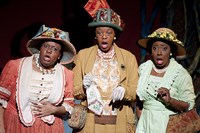 “What would my mother think?” “What would my children think?” “What would my friends think of me if they knew I did/liked/desired that?!” The opinions of our loved ones matter to us, and many hold themselves back with an unconscious fear of disgracing ourselves in their eyes. This fear can be seen on more superficial levels as manner of dress, chosen profession (particularly in eastern cultures), even social and professional affiliations. It is closely related to fear of social rejection, only greater. If you can hear your mother scolding you, it is doubtful you will be climaxing. Now obviously some people might experience the opposite and actually get sexually aroused from the same scenario; however, most people who have an unconscious fear of disgracing their loved ones will be affected negatively sexually.
“What would my mother think?” “What would my children think?” “What would my friends think of me if they knew I did/liked/desired that?!” The opinions of our loved ones matter to us, and many hold themselves back with an unconscious fear of disgracing ourselves in their eyes. This fear can be seen on more superficial levels as manner of dress, chosen profession (particularly in eastern cultures), even social and professional affiliations. It is closely related to fear of social rejection, only greater. If you can hear your mother scolding you, it is doubtful you will be climaxing. Now obviously some people might experience the opposite and actually get sexually aroused from the same scenario; however, most people who have an unconscious fear of disgracing their loved ones will be affected negatively sexually.
This can be tough and deep rooted, so I encourage anybody who is aware of this obstacle in their sex life to seek help. Please contact me.
Fear of dishonored reputation
 Many of us have worked hard to establish ourselves professionally, and as a result we have earned a certain reputation in our industries, our communities and within the world at large. It is not uncommon for the fear of loss of reputation to affect our decisions, in many ways good, as it keeps some of us in check, and prevents us from doing things that embarrass us later. However, when that fear runs deep it can affect sexual arousal, performance and orgasmability (creativity and partner satisfaction as well).
Many of us have worked hard to establish ourselves professionally, and as a result we have earned a certain reputation in our industries, our communities and within the world at large. It is not uncommon for the fear of loss of reputation to affect our decisions, in many ways good, as it keeps some of us in check, and prevents us from doing things that embarrass us later. However, when that fear runs deep it can affect sexual arousal, performance and orgasmability (creativity and partner satisfaction as well).
Some careers or professions are historically uptight—teachers, judges, clergy, to name a few—and thus people within those professions may have difficulty enjoying di-orgasmic sex. Saying that, however, anything that is repressed will be expressed elsewhere and so plenty of these professionals exhibit quite carefree (and sometimes careless) sexuality. The rise in female teacher sex relations with male students is testament to this. But to those afflicted with an irrational fear of losing face if their pleasures and fantasies are found out, only keep themselves from enjoying sex and experiencing thunderous orgasms.
While these seven fears may seem irrational to those who do not suffer them, I can assure you they are very real. And while some people are perfectly content with both their fears and their anorgasmic or mono-orgasmic sex lives, plenty are frustrated by them. If you happen to be one who cannot figure out why you no longer reach orgasm (or never have!), then it will be wise for you to self-reflect and investigate, and if you find that one or more of these fears is in fact hampering you, you can overcome them, and enjoy explosive sexual experiences that need to be experienced to believe. Please contact me if you need help in this area, and stop missing out on this natural gift that has been bestowed upon us humans—the pleasures of orgasm. Believe me your life will blossom.


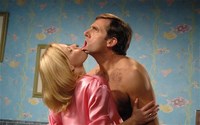


 As I was sitting around the virtual universe, the topic of orgasm came up, specifically how to know one’s most optimal
As I was sitting around the virtual universe, the topic of orgasm came up, specifically how to know one’s most optimal  Obviously the upside for men is that the pleasures of the big-bang are a part of most, if not every, sexual act. For women, though, it takes work—in the form of
Obviously the upside for men is that the pleasures of the big-bang are a part of most, if not every, sexual act. For women, though, it takes work—in the form of 

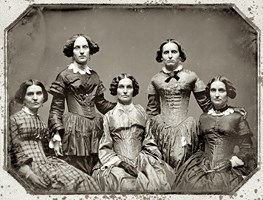
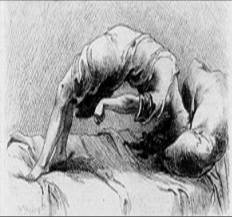
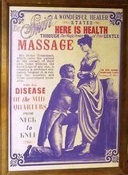

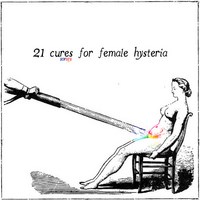 “In 1902, the American company Hamilton Beach patented the first electric vibrator available for consumer retail sale as opposed to medical usage,
“In 1902, the American company Hamilton Beach patented the first electric vibrator available for consumer retail sale as opposed to medical usage, 